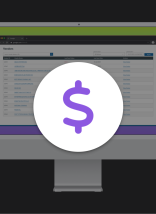I hate how complicated my Web Analytics tool seems to be. Why can’t it be smart and show me what I need to know?
The speed in which your internet marketer identifies wins and losses is vital to your businesses success. However, in most cases – businesses fail to realize just how important that human element is when it comes to internet marketing. Web Analytics is an ever changing box of puzzle pieces that define how and why your online presence benefits your businesses success. As you put the pieces together to create a clearer picture of how your website is doing and what is driving outcomes rather than failures, you will begin to realize any “wasted” time spent on data analysis translates to opportunity cost that could be invested into creating new pieces to yield. The above situation is a catch-22 though; because on the flipside creating pieces without data analysis leads to overhead when incorrect pieces are made that simply do not fit.
You better be creating a business intelligence dashboard before the deep-dive.
Here are my two conclusions in regards to data analysis versus making marketing moves online.
- You are damned if you do too much data analysis and you are damned if you don’t do enough data analysis.
- Let’s make it easier for the internet marketer to see the relevant data that helps them decide which pieces need to be created. (Custom dashboards!)
There is such a thing of digging your own grave when it comes to data analysis. Focusing on the wrong metrics and the wrong dimensions can lead to this.
Defining your custom dashboards based off of which business questions and marketing channels you are analyzing will save you lots of time and avoid unnecessary digging.
Here is a scenario I have encountered myself during my tenure at Atlantic Business Technologies.
My rules of thumbs when creating business intelligence dashboards in Google Analytics
Take the time to define which groupings of metrics, segments and dimensions you plan to keep track of a day. My golden rules for data and dashboards are the following:
- If you can’t explain how the data affects the bottom line of your business, don’t include it.
- If you can’t drill deeper into the dashboard, it is most likely too specific of a report to be considered a dashboard.
- If you don’t have at least one dashboard that focuses on growth opportunities, make one.
- Grow a habit of using the dashboards frequently.
- Grow the dashboard as needed. Adapt.
Some examples of dashboards I’ve created:
Visitor / Client Retention (Customer Lifetime Value)
-# of Visits for returning visitors.
-Bounce Rate
-Traffic Sources of Returning members
-Trend data for Facebook / Twitter for Returning visitors
-Top Content viewed by these individuals
-Days from last visit
Market Channel Performance (focused on new visits / conversions and conversion rate)
-New Visits broken out by marketing channel which includes SEO, PPC, Email, Direct / Branded Searches and Referral traffic
-Conversion Rate by channel
-Total conversions by channel
-Bounce rate by channel
Non-Branded SEO Channel Performance
–Total # of visits
-Top 10 visits by state
-Top 10 goals by state
-Conversions by sport type
-Landing pages compared to bounce rate
-Keywords that did not lead to conversions
-Keywords that lead to conversions
Pay Per Click Channel Performance
–Total # of visits
-Top 10 visits by state
-Top 10 goals by state
-Conversions by sport type
-Landing pages compared to bounce rate
-Keywords that did not lead to conversions
-Keywords that lead to conversions
-Conversions by Campaign
-Total Cost vs. Total Conversions
Market Channel Performance (focused on new visits / conversions and conversion rate)
-New Visits broken out by marketing channel which includes SEO, PPC, Email, Direct / Branded Searches and Referral traffic
-Conversion Rate by channel
-Total conversions by channel
-Bounce rate by channel
My question to you is this, what dashboards would you create for your business and why?









